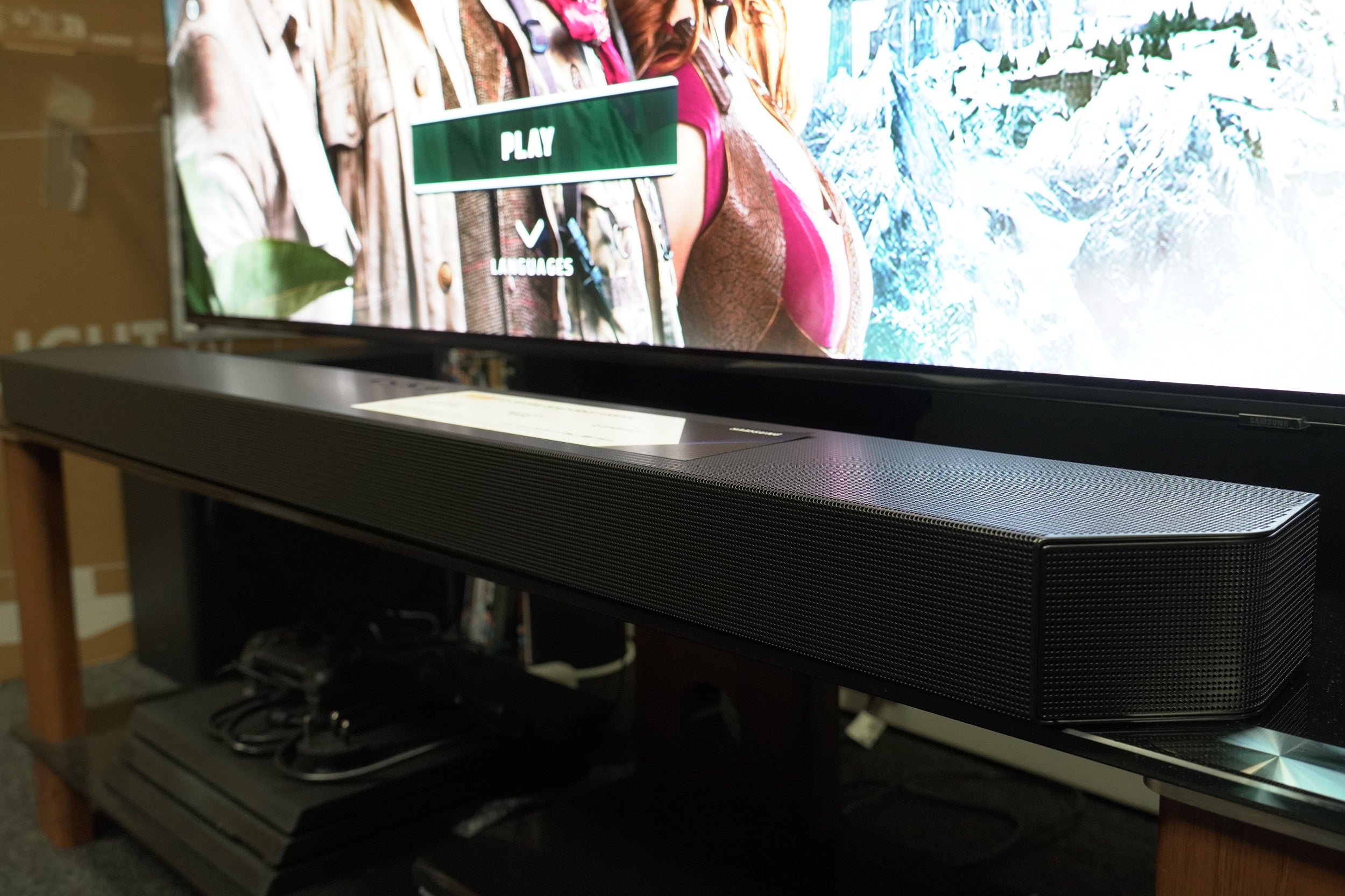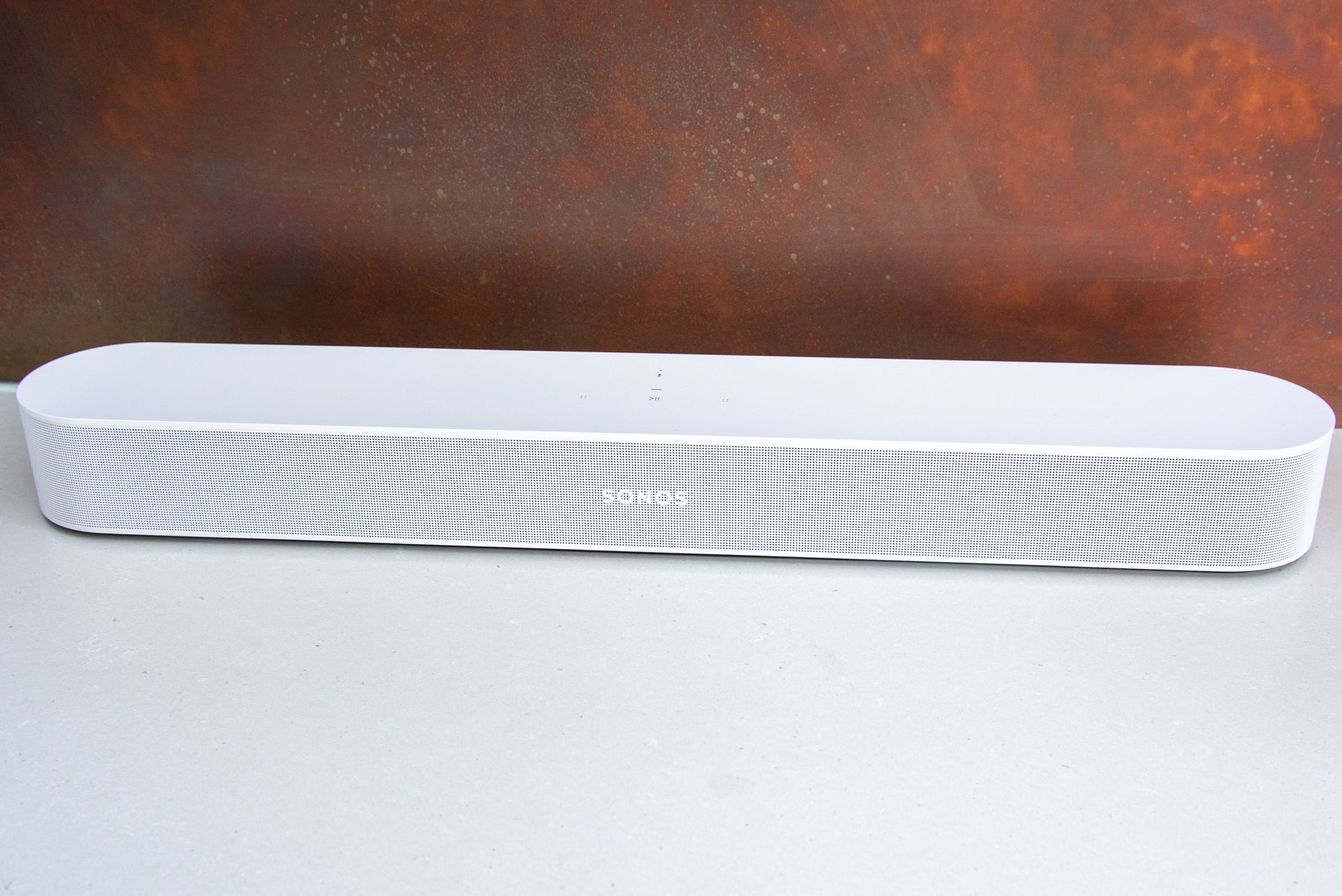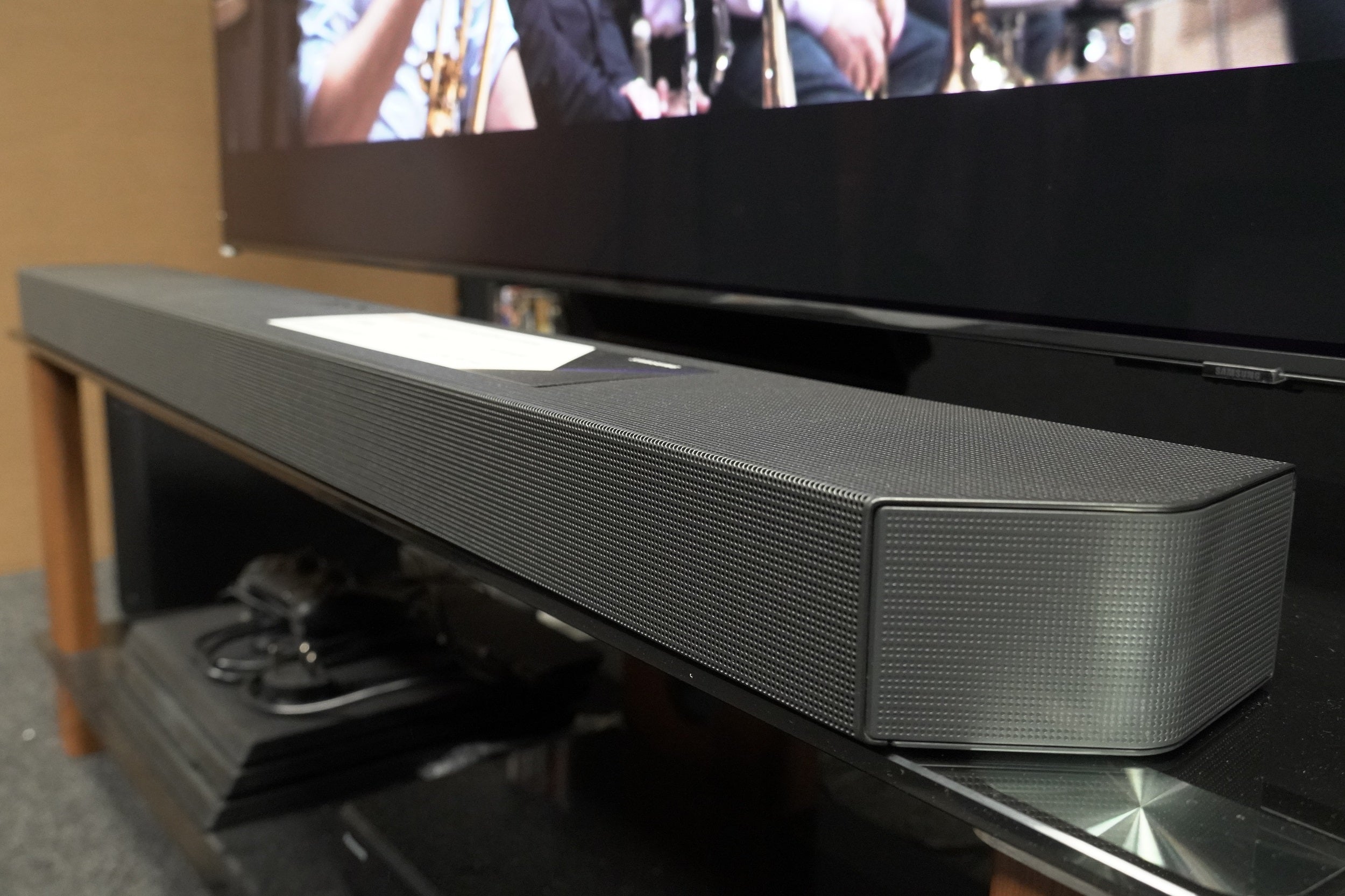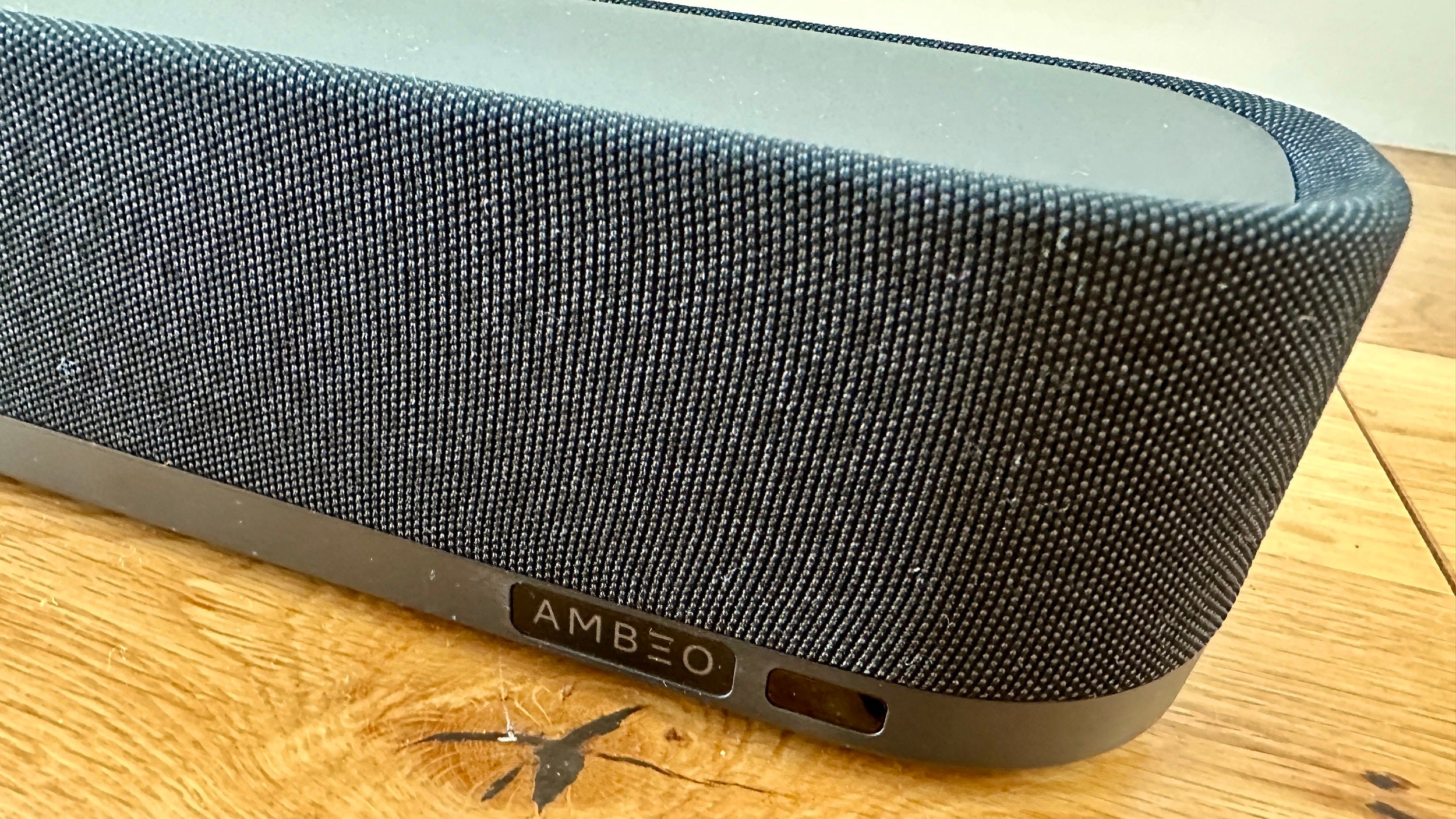Sonos Arc Surround Sound Package Review
Is it worth upgrading to the Sonos Arc Surround Sound Package?
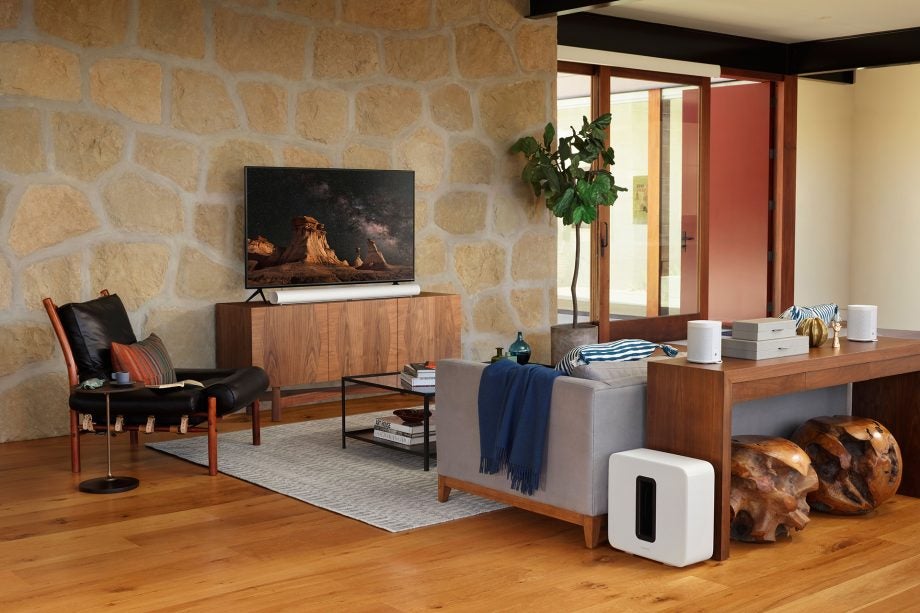

Verdict
As impressive as the Dolby Atmos soundbar was, the system can get better with a Sonos Arc Surround Sound Package. Adding two identical speakers for the rear channels gives better positional audio and a more immersive experience, making this an essential upgrade for many. For those that want the best bass, adding a Sonos Sub into the mix delivers a powerful and earth-shattering experience, although this upgrade is very expensive.
Pros
- Surround sound speakers make audio more immersive
- Sub adds cinematic levels of bass
- TruePlay makes everything work beautifully
Cons
- Sub is very expensive
Availability
- UKRRP: £1856
Key Features
- SurroundsUse any two Sonos S2-compatible speakers for surround sound
- SubwooferWorks with Gen 1, 2 and 3 Sub
Introduction
As a standalone soundbar, the Sonos Arc can deliver an immersive Dolby Atmos experience, but if you miss the boom of a separate subwoofer or proper rear speakers you can upgrade and add these components.
With a set of Sonos speakers acting as the rear channels and a Sonos Sub onboard, the Arc takes another step forward, delivering a more convincing soundstage and better positional effects. Just be prepared to pay a hefty premium for the experience.
Set-up
- Works with any S2-compatible speakers
- Best suited to the Sonos One SL or older Play:1 speakers
- You can add up to two subwoofers
The Sonos Arc is designed to be a 5.0.2 system, replicating standard surround sound and throwing in the extra height speakers for Dolby Atmos. What’s missing is a subwoofer for deeper bass effects and the rear channels.
As with Sonos’ other soundbars, the Arc can be upgraded using two standalone Sonos speakers for the rear channels and one or two Sonos Subs for the bass. To upgrade, you need to choose the right speakers.
The main restriction is that any additional Sonos speakers you choose must run the Sonos S2 operating system. For the Sonos Sub, you can use any model, as the Gen 1 and Gen 2 models are upgradeable, and the new Gen 3 product exclusively runs S2. If you buy the new Sonos Sub, that’s an extra £699 to factor into the cost.
For rear speakers, you’ve got a more limited selection of products. You can run any two identical products as the rear speakers, but choice is important.

So, while you could run two Play:5 (or two of the new Five) speakers, this is overkill for a set of rear channels. It makes sense to pick the more entry-level speakers. So, if you’ve got a set of old Play:1 speakers, I’d go with them. If you’re going to buy new speakers, it makes sense to buy a pair of One SL speakers. They are effectively the same as the Sonos One but don’t have Alexa or Google Assistant built-in (you won’t need a voice assistant, as the Arc does this job). These are the speakers that I used for this review, which would cost an additional £358.
Alternatively, the Ikea Symfonisk bookshelf speaker makes a good choice for the rear speakers. Once you’ve chosen your set of speakers, you can follow the wizard through in the app to add them to the Sonos Arc. As the speakers are all wireless, provided you can get a power cable to them, positioning shouldn’t be a problem. Likewise, adding the Sub is just as easy.
If you go for the whole lot, the whole system will set you back a whopping £1,856. Once connected, Sonos will prompt you to perform Trueplay again, tuning the system for both home theatre and music.
Sound Quality
- Provides real surround sound
- Fills in texture and makes films more immersive
- One Sonos Sub can be overkill, depending on the size or room
- Sub adds proper kick to film soundtracks
As good as the standalone Sonos Arc is, I found that while the sound filled a room, positionally there wasn’t a lot going on behind. The virtual surround is less convincing than the tech used by Yamaha on its soundbars, such as the YSP-2700.
Adding rear speakers into the mix ups the game, providing sound that comes from behind. The system can be both subtle and more engaging. Take Bong Joon-ho’s Parasite. When the rain starts towards the end of the film, the rear speakers gently fill in the gaps, and you feel as though the rain is all around you.
Sonos mixes and blends the sound perfectly. If you stop and get your ear closer to one of the surround speakers you can hear what it’s doing; but, when you’re engaged in the film, the rear speakers beautifully blend in.
Depending on what you’re watching, the rear speakers can be used to deliver positional sound, too. Watching Snowpiercer on Netflix with its Dolby Atmos soundtrack, one episode has a character speaking as the camera turns around. As it turns, the speech moves from the front right to the rear right of the Sonos Arc system. It’s a powerful use of audio, as the sound lines up with the camera movement, making you feel more engaged.
Fire up 6 Underground, and the effects whizz around you, putting you at the centre of that opening car chase. Out of any upgrade for the Sonos Arc, adding rear speakers is the upgrade that really makes a big difference. While the Arc could fill a room, it’s the addition of rear speakers for 5.1 or Dolby Atmos content that gives you that greater degree of positioning and engagement.

I reviewed the Sonos Sub when it first launched, and it was immediately one of my favourite subwoofers. Nothing has changed in the intervening years, and the Sub remains excellent. I used a Gen 2 model for this review; the newer Gen 3 has an upgraded processor and wireless chip, but the sound is otherwise similar.
One of the benefits of the Sub is that you can use it upright, with the doughnut-shaped speaker looking great out on the floor, or you can slide it horizontally out of the way under a sofa. If one of the things putting you off having a surround sound system is speaker clutter, the Sub goes a long way to dispel that issue.
Standalone, the Sonos Arc is capable of some impressive bass, although the transition from bass to midrange isn’t handled perfectly. Adding the Sub changes that, with the subwoofer handling the low-end, the soundbar can handle the midrange up, making for smoother transitions, plus you get deeper and louder bass.
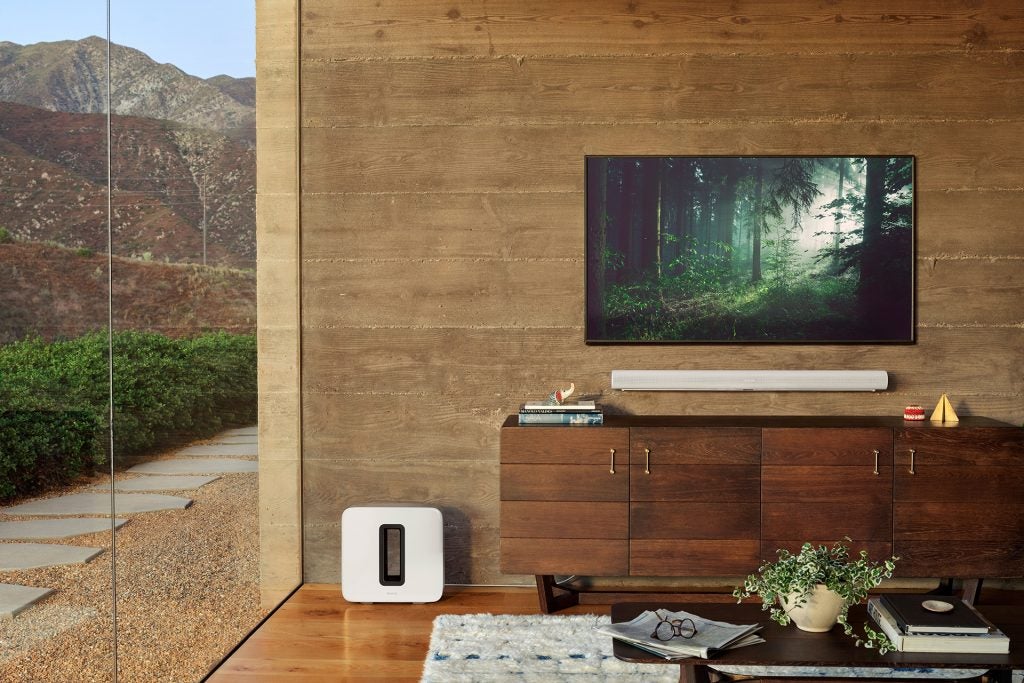
Watching Captain Marvel on Ultra HD Blu-ray, you get full thump of the laser blasts from the opening fight sequence, and that more exciting roar from the starship chase towards the end. It’s far more cinematic with the Sub than without, adding that that proper rumble. I have to mention what a good job Trueplay does of tuning the system to get the right balance so that the Sub doesn’t overwhelm.
Is it necessary to have the Sub, though? Well, no. By itself (or with the rear channels), the Arc delivers an impressive cinematic experience on its own right, and I don’t feel as though it’s lacking in bass to the point where the Sub is an essential upgrade.
Given how expensive the Sub is, it’s a serious investment. For those that want the absolute best cinematic experience, there’s no denying how good the Sub is; for those that can’t justify the expense, I’d focus on adding the rears, with the soundbar capable of delivering enough bass to impress.
Latest deals
Should you buy it?
You want proper surround sound You can add rear speakers so that audio actually comes from behind you, making films more immersive.
Your TV doesn’t support Dolby Atmos If you can’t get Atmos then there’s little point buying the Sonos Arc Surround Sound Package
Final Thoughts
The Sonos Arc is an impressive soundbar in its own right, delivering an impressive soundstage and immersive Dolby Atmos 3D audio, if you have the right type of TV. Run it standalone and it’s an excellent way to boost sound.
Upgrading with additional speakers makes a great soundbar even better. In particular, adding rear speakers makes a huge difference. While most of the Arc’s default sound is in front or above you, the rear speakers fill in the final bit of the puzzle. Whether it’s boosting background noise or through better positional effects, rear speakers are a relatively cheap way of making the cinema experience more immersive.
The Sub is a harder add on to justify because it is almost as expensive as the Arc. I love this subwoofer and its power and way that it rebalances the bass and mid-range in the Arc is hugely impressive, delivering that full boom that makes everything more cinematic. Yet for all its prowess, it’s a hefty investment and one where the benefit is so keenly felt, as the bass and impact of the Arc is impressive anyway. And, room size has a big impact, as for smaller rooms the Sub may veer towards being a bit overwhelming.
From my point of view, if you want the absolute best, then buy a Sub and two surround speakers gives you the high-end experience to match the high-end price. If price is more of an issue, then adding the surround sound speakers and forgoing the Sub boosts what the Arc is capable of and gives you a more immersive experience.
How we test
We test every surround speaker package we review thoroughly over an extended period of time. We use industry standard tests to compare features properly. We’ll always tell you what we find. We never, ever, accept money to review a product.
Find out more about how we test in our ethics policy.
FAQs
You can use up to two Sonos Subs.
You can use any pair of Sonos speakers provided that they run or can be upgraded to Sonos S2.

